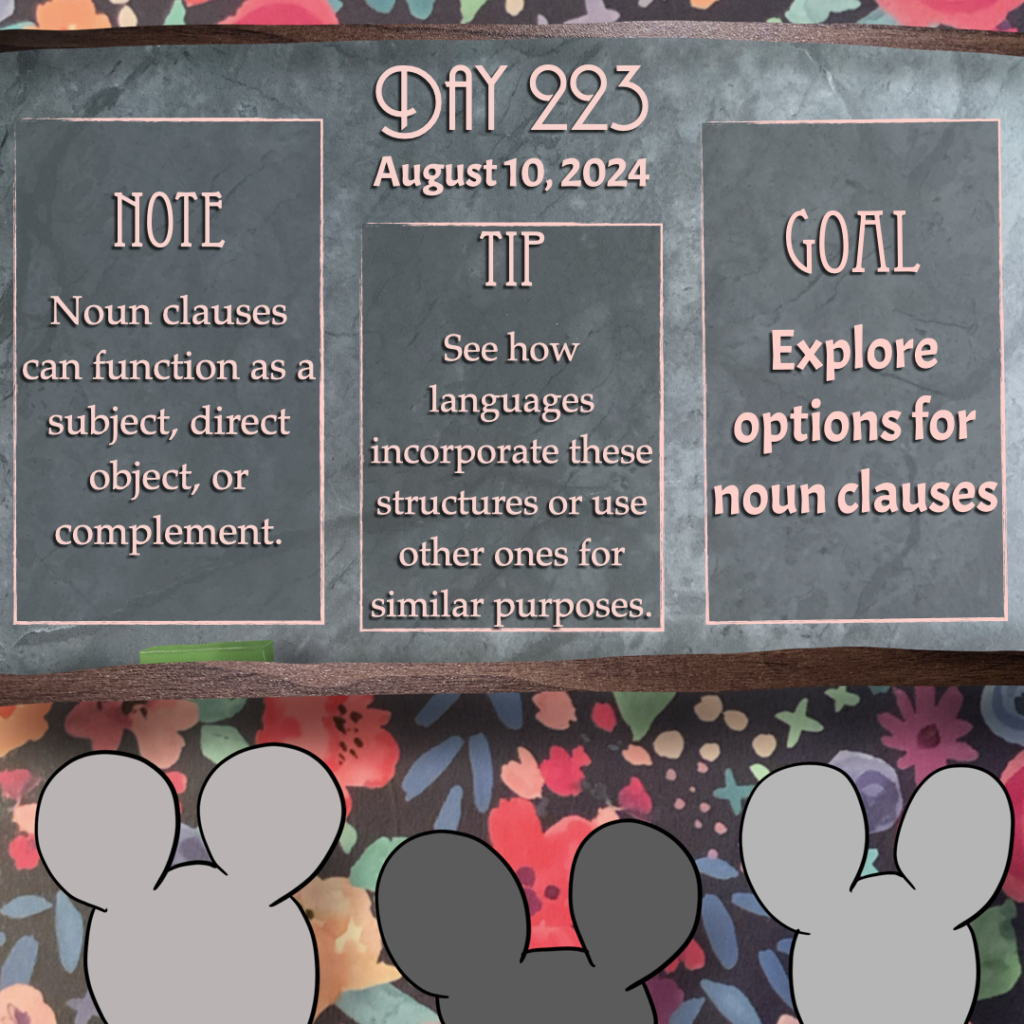
Goal: Explore options for noun clauses
Note: Noun clauses can function as a subject, direct object, or complement.
Tip: See how languages incorporate these structures or use other ones for similar purposes.
Work focus: Learn/Brainstorm/Try
Noun clauses are finite clause structures that function as nominal elements, such as the object of a verb. Common verbs that take clauses as their object include cognition (e.g. believe, think) and communication (e.g. say, tell) verbs. For instance, in the sentence “Joel said he needs a new coat,” the clause “he needs a new coat” is the object of the verb “said.”
Some grammars refer to these clauses as complement clauses because they complete the meaning of the verb. Using the term “complement clause” is also good because complements go beyond functioning as the object of a verb—they can complete meanings of adjectives and adverbs and more!
Some languages allow noun clauses to also function as subjects, as in “That we need more groceries is a given.” However, if a language allows this kind of structure, it is often more restricted.
Use today’s time to research and learn more about noun clause structures and to decide if you want to incorporate them into your language—and, if so, start earmarking ideas for how they might function.
